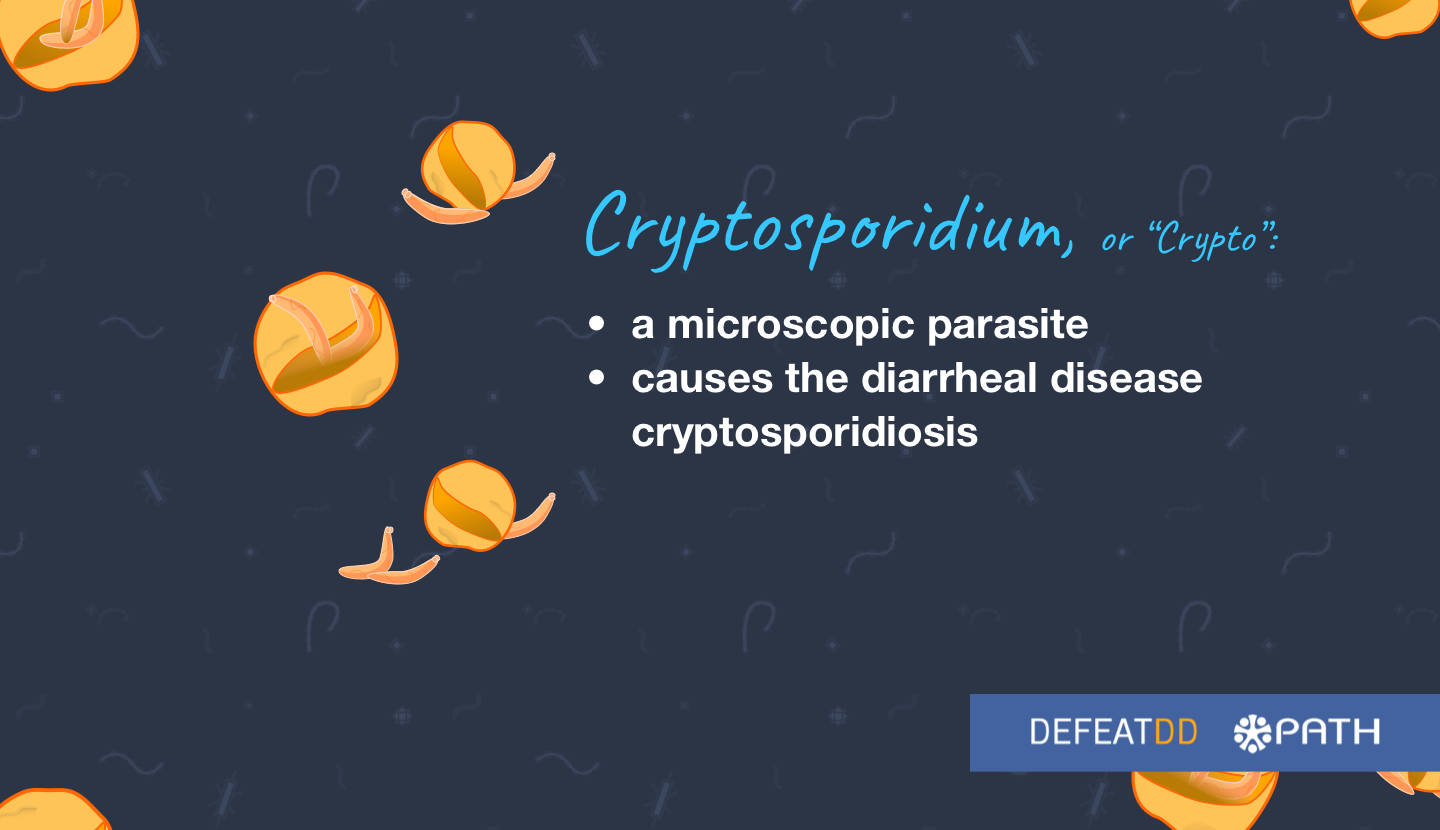It’s time to shine a spotlight on an often-overlooked deadly diarrhea parasite
|

Although Cryptosporidium is now identified as one of the leading causes of diarrheal disease among young children, this is a fairly recent development. Cryptosporidium (or Crypto) was first recognized as a human pathogen in the 1970s, but it wasn’t until 2013, when results from a major clinical and epidemiological survey conducted across Africa and Asia were published, that the true threat of this parasite became clear. Since then, additional multi-country studies and several smaller scale birth-cohort studies have added to the growing body of evidence confirming the significant impact that Crypto has on child health, especially in low-resource settings.
Despite the magnitude and significance of the problem, only a single drug is approved to treat Crypto infections, and new therapies and preventative options are urgently needed. To help move the field forward, PATH is hosting the Third Symposium on Innovative Therapeutics for Cryptosporidium this week to call attention to this neglected enteric pathogen and the push to develop new interventions to reduce the disease burden.
Similar to our first two meetings in 2016 and 2018, we have assembled (virtually this time) leading researchers to present and discuss the current state of work on Crypto—from early discovery to clinical development and commercialization, veterinary medicine, diagnostics, and vaccines. Our goal is to share research, highlight opportunities for collaboration, and spark innovation toward making new and improved therapies a reality. During this time when much of the biomedical research community is focused on the COVID-19 pandemic, it is important not lose momentum in our progress to advance interventions directed against other pathogens of global health importance.
As a parasitic disease, Crypto is more difficult to treat than bacterial or viral infections. While many other diarrheal diseases can be prevented with vaccines or treated with antibiotics, there is no Crypto vaccine or effective treatment for all patients. The single drug approved for Crypto infections is largely ineffective in children who are undernourished and individuals with compromised immune systems, who are most at-risk for severe illness. Crypto is also believed to be a leading contributor to environmental enteric dysfunction, a condition characterized by structural gut damage as a result of repeated enteric infections in childhood that has significant repercussions including growth stunting, malnutrition, reduced oral vaccine efficacy, and cognitive developmental deficits.
Despite its clear impact on health and severe lack of prevention and treatment options, Crypto is not designated as a neglected tropical disease (NTD) by the World Health Organization nor is it included on the list of tropical diseases eligible for a priority review voucher (PRV) from the US Food and Drug Administration (FDA). Adding Crypto to the PRV-eligible list of tropical diseases has the potential to accelerate the development of new therapeutics and vaccines against this deadly disease (you can learn more about the reasons why in this PLOS NTD Viewpoints article that I co-authored).
The symposium is virtually bringing together more than 100 experts working in the field of enteric diseases to discuss recent research related to Crypto and determine a way forward to address the impacts of this deadly diarrheal parasite. With increased investment and collaboration, we can accelerate progress toward controlling Crypto—bringing better health within reach for vulnerable children worldwide.












